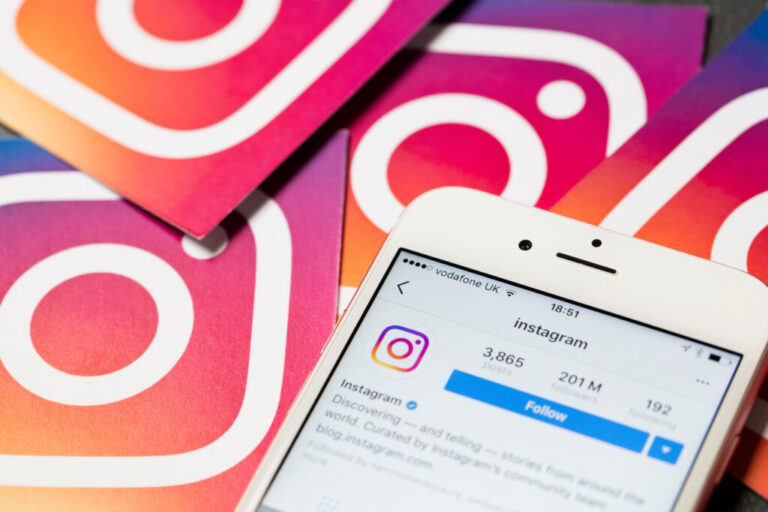Likes, Likes, and More Likes! The Instagram Phenomenon

Several social media platforms are introduced, and they gain the attraction of users on the internet. But Instagram has its separate fan base and is considered the most influential platform because of its visually appealing features and interactive interface that keep the audience captivated and stuck to it for longer. Not only on Instagram but on every social media platform, likes are a way of showing appreciation to others without saying anything. Besides that, follow and share also hold immense significance. We are there to provide every detail of how the Instagram phenomenon works, exploring its evolution, impact on society, and the psychological underpinnings of the “like” button.
I. The Evolution of Instagram
If we go into the history of Instagram launched in October 2010, it was first introduced as just a photo-sharing app. You can share your happy moments with your friends, family members, and followers. Because of the focus on visual content, this platform became famous, and its simplicity gained popularity. Even in two months, Instagram had more than 2 million followers from all over the globe. Later it gained recognition from other social media platforms too Just like in 2012 Facebook considered it the potential app in the world of social media.
In the past few years, Instagram has added a lot of features along with photo sharing. You can share Instagram stories, reels, IGTV, or start live sessions. These features made this platform more attractive and versatile, due to which it aims to gain maximum audience. Individuals, businesses, influencers, celebrities, and brands have moved towards Instagram. It hasn’t stopped there yet but is becoming a complete digital marketplace where brands can market and advertise their products and thrive engagement.
II. The Impact of Instagram on Society
Personal Branding and Identity
Instagram has become a virtual stage where individuals curate and showcase their lives. The carefully curated feeds, filters, and captions allow users to craft their online persona, emphasizing certain aspects of their lives while concealing others. This has given rise to the concept of “personal branding,” where individuals cultivate a specific image to increase Instagram followers, likes, and engagement.
Mental Health and Self-esteem
While Instagram offers a platform for self-expression, it also presents challenges to mental health. The constant comparison to idealized representations of others’ lives can lead to feelings of inadequacy and low self-esteem. The quest for likes and validation can become an addictive cycle, impacting mental well-being.
FOMO (Fear of Missing Out)
Now anyone through Instagram’s Stories feature you can check what others are doing in real time. because people post every bit of their life on Instagram stories due to which fear of mission out increased. As people feel that if they don’t remain active on social media other users will forget them they’ll lose their value. Due to this several users are already experiencing anxiety, depression, and several other mental health issues.
Cyberbullying and Online Harassment
Although Instagram is not like other social media platforms and chances of cyberbullying and online harassment are much less. Still, the wave of spreading negativity on the Internet can urge users to engage in hurtful behavior, negatively impacting the mental health of those targeted.
III. The Psychology of the “Like” Button
The “like” button on Instagram is a powerful tool that plays a central role in the platform’s culture. It serves as a form of social validation and feedback, triggering various psychological responses:
Dopamine Release
When users receive likes on their posts, their brains release dopamine, a neurotransmitter associated with pleasure and reward. This positive reinforcement encourages users to continue posting and seeking validation.
Social Comparison
The number of likes a post receives is often used as a metric for social comparison. Users compare their own posts’ likes to those of others, leading to a sense of competition and a desire to achieve higher like counts. This can affect self-esteem and happiness, as users may feel inadequate if their posts don’t receive as many likes as they hoped for.
Social Approval and Validation Likes serve as a form of social approval and validation. They indicate that others appreciate and resonate with the content shared. This approval can boost self-esteem and provide a sense of belonging, especially for users who may not receive as much validation in their offline lives.
IV. The Business of Likes
For businesses and influencers, likes are more than just a psychological reward; they have real-world implications. The number of likes a post receives can influence its visibility and reach. The Instagram algorithm often prioritizes content with higher engagement, making it more likely to appear on users’ feeds.
As a result, many businesses and influencers invest time and resources into strategies to increase their like counts. While some even gain instagram likes to improve their credibility instantly.
V. The Quest for Authenticity
Amidst the race for likes and followers, there’s a growing movement towards authenticity on Instagram. Many users and content creators are starting to prioritize genuine connections and meaningful content over superficial metrics. Many influencers and users are sharing the true essence of life and showing us real life is much different than real life and everything you see on social media is not true. This helped in improving the mental health of users, Also Instagram has taken the initiative by hiding like counts in several countries to reduce the pressure associated with public like counts.
Final Words
Everyone these days looks for social media apps especially Instagram for the validation of their looks and the way we interact with businesses. Instagram has made a massive change from being just photo-sharing platform to a multi-purpose platform with several opportunities for its users. The pursuit of likes follows, and shares on Instagram has resulted in both positive and negative outcomes in how we see ourselves and judge others. As a society, we must continue to engage in conversations about the evolving role of Instagram and social media in our lives, emphasizing the importance of authenticity and genuine connections amidst the sea of likes.



